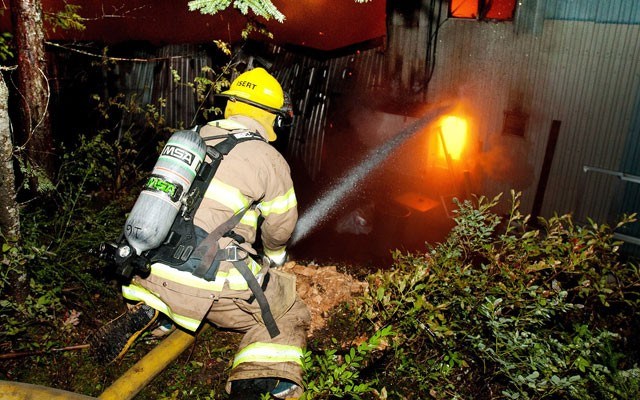Think twice about pulling that fire alarm when there is no fire or having a charcoal barbecue at the park, as new fines and fees at Whistler's municipal hall might set your wallet ablaze if you do.
At the Dec. 6 Whistler council meeting, councillors approved amendments to the Resort Municipality of Whistler's (RMOW) fire and life safety bylaw that will see a variety of new fines introduced for false alarms, using charcoal barbecues in municipal parks, and additional fees for firefighter services.
The bylaw amendments prohibit charcoal briquettes in municipal parks at all times due to the risk of burning substances being disposed of in the garbage. Those caught using charcoal briquettes will face a $150 fine ($100 if paid early). Propane barbecues are still allowed under the amendment, even in extreme fire conditions.
Under the previous bylaw, all municipal addresses were allowed one free false alarm per municipal address; this will no longer be the case. All false alarms will cost $250 per occurrence to reduce the number of costly call-outs.
Currently, the Whistler Fire Rescue Service (WFRS) receives more than 500 false fire alarm calls annually due to construction work, testing without notification, poorly maintained systems, cooking, and deliberate acts of nuisance.
The RMOW will not issue fines for alarms that result from an actual fire, or if the alarm call is cancelled or confirmed false before personnel respond from the fire hall. The estimated increase in revenue from the change will be about $125,000 annually if false alarms continue at current rates.
The amendment also adds a $500 fine ($300 if paid early) for industrial logging operations failing to call 911 in the case of a fire—$500 is the maximum a municipality can fine an individual for any bylaw infraction.
The bylaw amendments also simplify and increase fees for WFRS services. The building inspection service fee will now be $125 for all buildings inspected by the WFRS. Under the previous bylaw, inspections for buildings less than 5,000 square feet cost $100, while inspections for buildings larger than that cost $150.
The RMOW expects the change will result in $150,000 of additional revenue.
The standby fee for call-outs to buildings requiring property managers or security to allow access is also simplified, replacing a complicated resource calculation formula with a flat fee.
Under the new structure, if a property manager or designated representative does not attend to the property within a 30-minute notice period, they will face a $150 standby fee and an additional $150 levy every 15 minutes beyond the 30-minute notice period.
A "no runner" fee of $150 is also being introduced for situations when the fire department requires a property representative to attend to the premises to provide access or security, and no such representative is made available to attend.
The bylaw amendment also adds Wildfire Act provisions recommended by the Forest Practices Board following an audit of the Cheakamus Community Forest last year.
“In May 2022, the Forest Practices Board contacted the Cheakamus Community Forest (CCF) and the RMOW. During a routine audit, they found eight slash piles were not removed from the site. That was due to high fire hazard at the time, so the CCF was aware of that,” said protective services planning analyst Kevin Creery in a presentation to council.
“The slash piles have since been removed, but through that audit, the Forest Practices Board recommended the RMOW add the Wildfire Act provisions into our fire and life safety bylaw, which were not there currently."
The bylaw amendment received first readings at the Dec. 6 council meeting, and will come back for adoption at a future meeting.
The changes are expected to take place in January 2023.
Learn more about Whistler’s Fire Service here.



